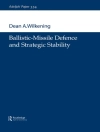In an age of rising groupthink, reactionary populism, social conformity, and democratic deficit, political judgment in modern society has reached a state of crisis. In
The Specter of Babel, Michael J. Thompson offers a critical reconstruction of the concept of political judgment that can help resuscitate critical citizenship and democratic life. At the center of the book are two arguments. The first is that modern practical and political philosophy has made a postmetaphysical turn that is unable to guard against the effects of social power on consciousness and the deliberative powers of citizens. The second is that an alternative path toward a critical social ontology can provide a framework for a new theory of ethics and politics. This critical social ontology looks at human sociality not as mere intersubjectivity or communication, but rather as constituted by the shapes that our social-relational structures take as well as the kinds of purposes and ends toward which our social lives are organized. Only by calling these into question, Thompson boldly argues, can we once again attempt to revitalize social critique and democratic politics.
Table of Content
Preface
Acknowledgments
Introduction: Cybernetic Society and the Crisis of Modernity
Part I: In the Courtyard of Babel: Postmetaphysics and the Failure of Critical Judgment
1. A Critique of the Judgment Paradigm in Contemporary Political Philosophy
The Dissolution of Political Judgment in Modern Society
An Epistemic Hall of Mirrors
Intersubjectivity and Discourse
The Revolt against Ontology
Toward a Critical Social Metaphysics
2. Hannah Arendt’s Reconstruction of Political Judgment
The Flight from the Real
Truth, Power, and Politics
Deliberation and Its Discontents
Democracy Misdirected
Critical Judgment and Radical Politics
3. The Discursive Fallacy: Language and Power in Practical Reason
In Search of Modern Democracy
The Pragmatist Turn in Contemporary Critical Theory
The Nature of Constitutive Social Power
Two Spheres of Moral Semantics
Constitutive Power, Moral Cognition, and Linguistic Communication
Reification through the Implicit Validity of Norms
A Critique of Justificatory Reason
4. Recognition Theory and the Obfuscation of Critique
Recognition and Critical Theory
The Contours of Power and Domination
Recognition without Social Ontology
Recognition and Social Pathology: Fromm versus Honneth
Resuscitating Critical Judgment: The Ontological Point of View
Part II: Beyond Babel: Social Ontology and the Reconstruction of Critical Reason
5. Recovering the Ontological Infrastructure of Political Judgment
Aristotle’s Social Ontology and the Structure of Political Judgment
Inequality and Rousseau’s Ontological Account of Social Pathology
Hegel and the Metaphysics of Modern Ethical Life
Marx, Labor, and the Ontology of Social Forms
6. The Properties and Modes of Critical Social Ontology
The Concept of Social Ontology
The Two Dimensions of Social Ontology
Properties of an Ontology of Sociality and Social Forms
Modes of Social Ontology
The Concept of a Social Scheme
Structural Levels of Social Ontology
The Basic Model of Critical Social Ontology
7. An Ontological Framework for Practical Reason
The Metaphysical Structure of Reason and the Ontology of Value
The Ontological Ground of Critique and Judgment
The Structure of Critical-Ontological Judgments
Phenomenology, Ontology, and the Structure of Critical Agency
Ontological Coherence: Overcoming Reification and Relativism
8. Obligation and Disobedience: The Practice of Critical Judgment
Crito’s Question, Rousseau’s Solution
The Common Interest and the Structure of Democratic Reason
Self and Social Relations: On Expanded Autonomy
Critique, Obligation, and Disobedience
The Ends of Political Obligation: Common Good and Social Freedom
Democratic Individuality, Solidarity, and Social Transformation
Bibliography
Index
About the author
Michael J. Thompson is Professor of Political Theory at William Paterson University. His many books include
The Politics of Inequality: A Political History of the Idea of Economic Inequality in America and
The Domestication of Critical Theory.












